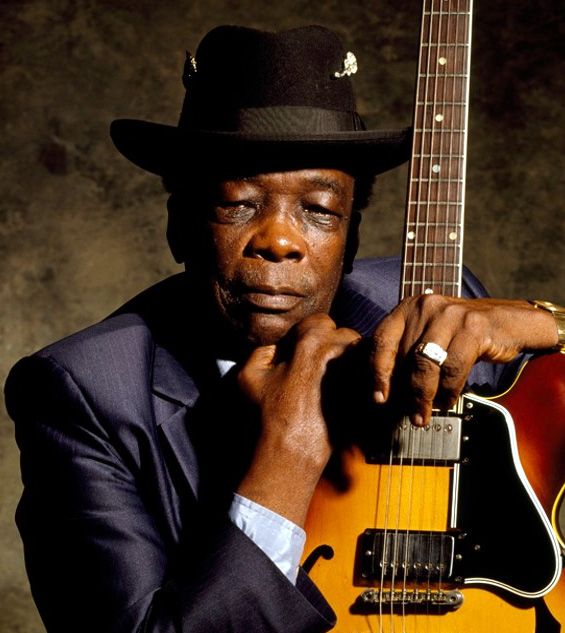John Lee Hooker, was one of the most influential figures in the history of blues music. He carved his name into the annals of musical history with his gritty voice, infectious rhythm, and distinctive guitar playing. Born on August 22, 1917, in the Mississippi Delta. Hooker’s rise from humble beginnings to international stardom transformed him into a legend whose influence resonates in blues, rock, and beyond.
Early Life and the Mississippi Delta
John Lee Hooker’s was born in the Mississippi Delta. This was a region renowned for its rich blues heritage. It set the stage for his musical journey. Raised on a farm in the small town of Clarksdale, Mississippi. Hooker’s stepfather was a sharecropper and preacher. He played the guitar, and it’s said that Hooker learned his first chords from him. The sounds of the Delta, from gospel and field hollers to the raw blues of rural life, became the heartbeat of Hooker’s musical identity.
He was influenced by the hardships of his environment. He grew up in an era where economic struggle, racial tension, and disenfranchisement were common experiences. Music was a way of expressing sorrow, joy, resilience, and longing, and Hooker’s music would later reflect this potent mix of emotions.
The Birth of the “Boogie” Sound
Hooker’s early musical influences came from Delta blues legends like Charlie Patton, Robert Johnson, and Son House. However, Hooker’s approach to the blues was different — it was less about complex chord progressions and more about the rhythm, creating a groove that could command attention. His deep, raspy voice, combined with his steady, hypnotic “boogie” style of guitar playing, soon became his trademark.
In the late 1940s, after moving to Detroit, Hooker began recording for local labels. His first major hit, Boogie Chillen’ (1948), became a massive success and solidified his place in the music world. It had a driving rhythm and repetitive, hypnotic guitar riff. The song captured the essence of the boogie-woogie style. It is a genre that had emerged from jazz and swing music. Boogie Chillen’ was a breakthrough for Hooker, not just because of its commercial success, but because it showcased his unique sound, blending the Delta’s deep roots with a more urban, electric sensibility.
The song’s success marked the beginning of a long career that spanned several decades. Hooker would go on to release numerous albums and singles, many of which became staples in the blues genre.
A Career of Reinvention and Collaboration
While John Lee Hooker’s style remained rooted in his early boogie blues, he was never content to stay stagnant. Over the years, he explored different styles, from the raw, minimalist blues to a more electrified, urban sound. This flexibility helped him remain relevant across different generations of blues fans and musicians.
In the 1960s, Hooker’s fame grew internationally, particularly in Europe, where the blues had begun to gain traction. It was during this time that he collaborated with a variety of artists across different genres. One of his most famous collaborations was with the rock band The Rolling Stones, which helped introduce his music to a younger, more diverse audience.
His album The Healer (1989), which featured collaborations with artists like Carlos Santana, Bonnie Raitt, and others, marked a significant moment in his career. The album brought him widespread recognition and critical acclaim, further cementing his place as a bridge between blues and other genres, including rock and pop.
Legacy
John Lee Hooker’s legacy is undeniable. Inducted into the Rock and Roll Hall of Fame in 1991, and in 2000, he won a Grammy Award for Best Traditional Blues Album for Don’t Look Back. You can still hear his influence in the music of rock legends like Eric Clapton, Led Zeppelin, and Keith Richards, who all cite Hooker as a major inspiration. His raw style, deep voice, and emotive playing served as a blueprint for generations of musicians.
Hooker passed away on June 21, 2001, at the age of 83, but his impact on the blues, rock, and popular music at large continues to echo. His songs remain timeless, serving as a powerful reminder of the power of rhythm, emotion, and storytelling.
Conclusion
John Lee Hooker’s influence is deep in the fabric of modern music. His deep, soulful blues, characterized by his distinctive guitar boogie, continues to resonate with listeners around the world. He not only shaped the sound of blues but also helped elevate it into mainstream consciousness. As the “King of the Boogie Blues,” Hooker’s music transcends genres and generations, leaving an indelible mark on the world of music.

